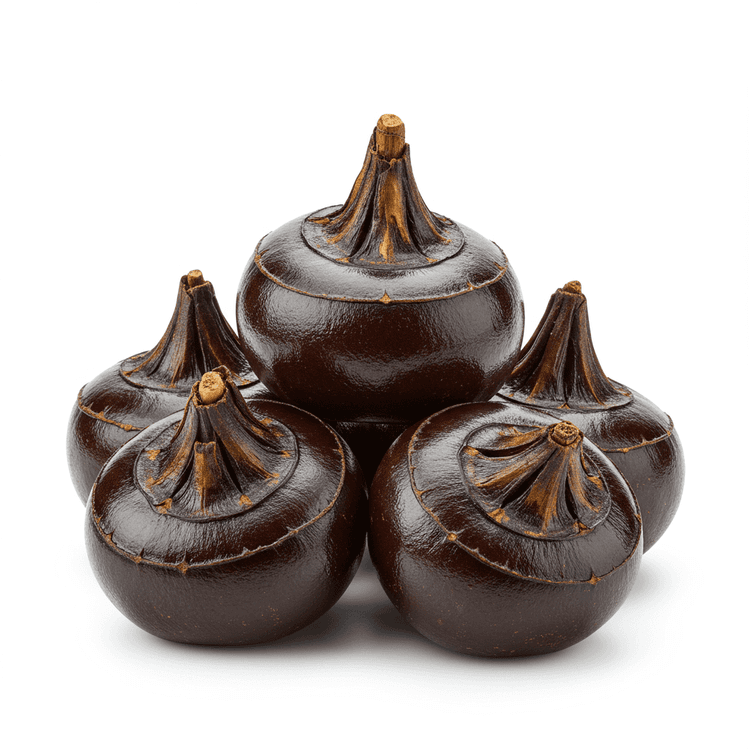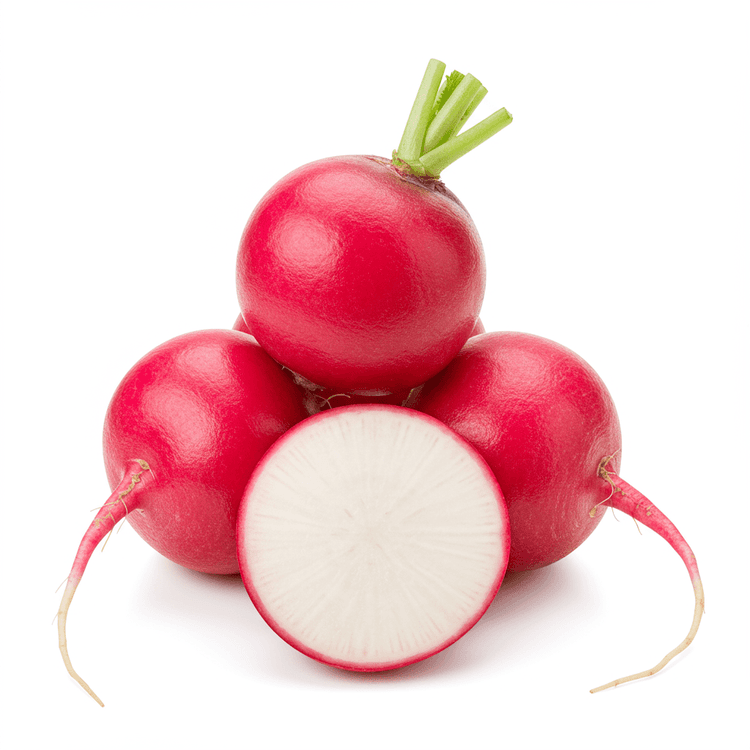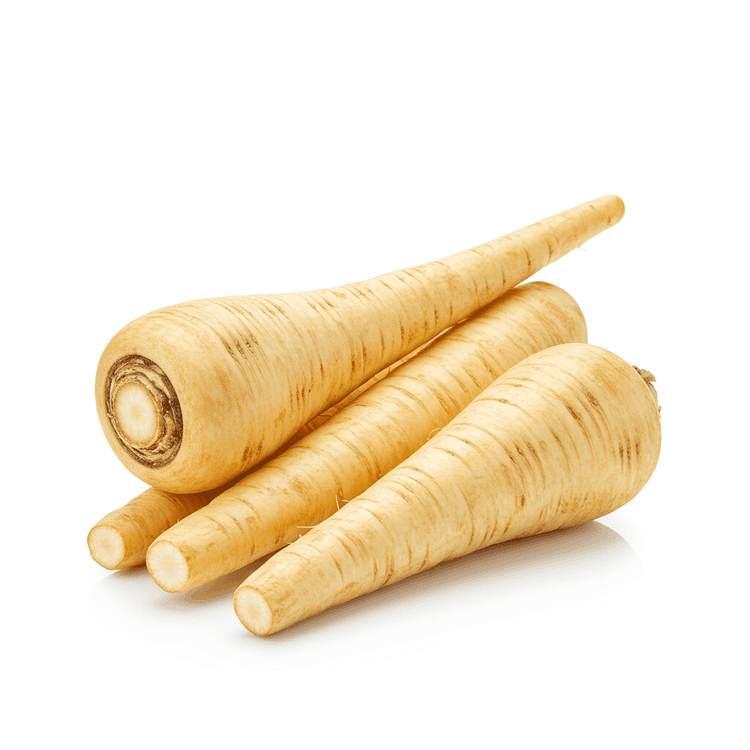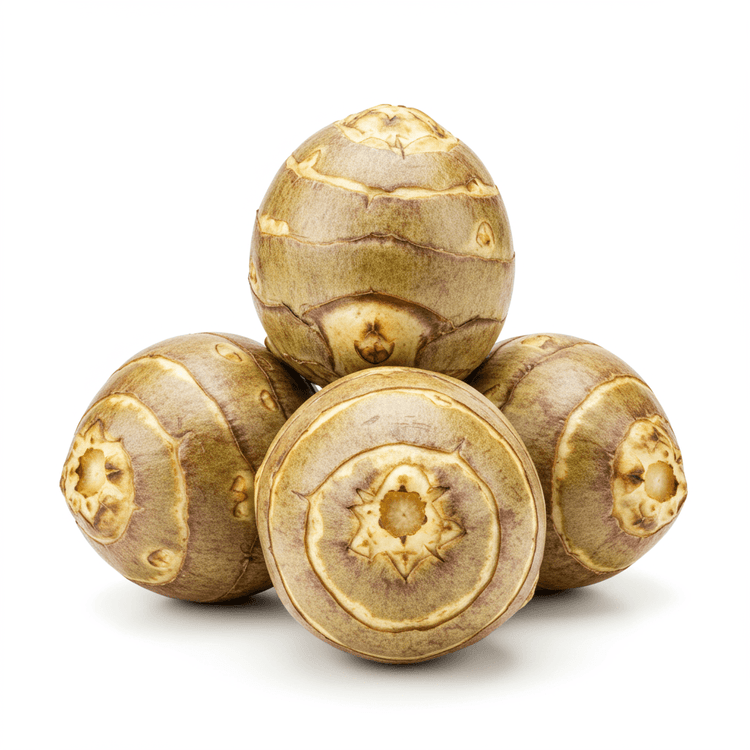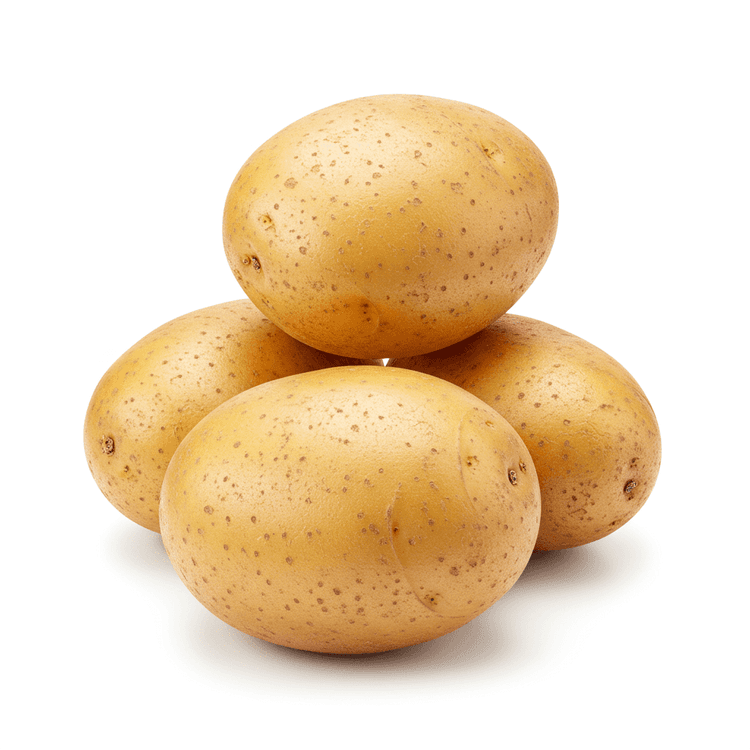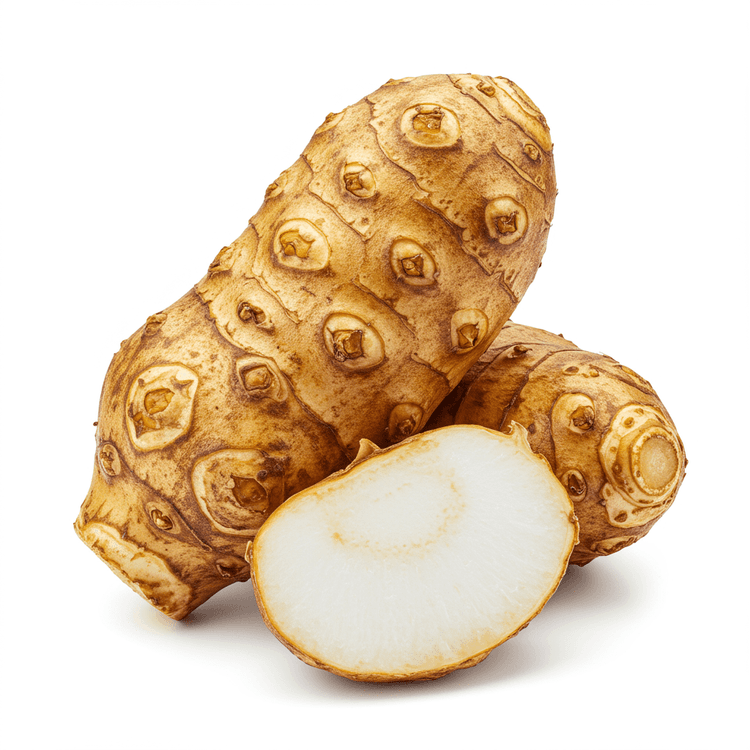
Sunchoke
Sunchokes, also known as Jerusalem artichokes, are knobby, tan-skinned root vegetables with a slightly sweet and nutty flavor reminiscent of artichoke hearts. Their crisp texture makes them enjoyable raw, while roasting brings out their earthy sweetness. Sunchokes can be used in a variety of dishes and are a delicious alternative to potatoes. This unique root vegetable offers a delightful earthy flavor for adventurous cooks.
Common Uses
- Sunchokes can be roasted with olive oil and herbs for a sweet and savory side dish, providing a caramelized exterior and a tender interior.
- Sunchokes are delicious when pureed into a creamy soup, offering a subtle earthy sweetness and a velvety texture. They pair well with flavors like garlic, cream, and thyme.
- Sunchokes can be thinly sliced and added raw to salads for a crisp texture and a nutty, slightly sweet flavor that complements other salad ingredients.
- Sunchokes can be pickled or fermented, creating a tangy and crunchy condiment that adds a unique flavor to sandwiches, salads, or charcuterie boards.
- Sunchokes can be mashed as an alternative to mashed potatoes, delivering a less starchy and slightly sweeter flavor with a creamy texture.
- Sunchokes are ideal for adding to vegetable gratins. Their slightly sweet, nutty flavor complements the other vegetables and the creamy sauce beautifully.
Nutrition (per serving)
Nutrition (per serving)
Calories
73.0kcal (3.65%)
Protein
3.0g (6%)
Carbs
17.4g (6.34%)
Sugars
9.6g (19.2%)
Healthy Fat
0.0g
Unhealthy Fat
0.0g
% Daily Value based on a 2000 calorie diet
Nutrition (per serving)
Calories
73.0kcal (3.65%)
Protein
3.0g (6%)
Carbs
17.4g (6.34%)
Sugars
9.6g (19.2%)
Healthy Fat
0.0g
Unhealthy Fat
0.0g
% Daily Value based on a 2000 calorie diet
Health Benefits
- Rich in inulin, a prebiotic fiber that promotes gut health and improves digestion.
- Excellent source of potassium, which helps regulate blood pressure and supports heart health.
- Contains iron, essential for red blood cell production and energy levels.
- Provides vitamin C, an antioxidant that boosts the immune system and protects against cell damage.
- Low in calories and fat, making it a healthy addition to weight management diets.
- May help improve blood sugar control due to its fiber content and impact on insulin sensitivity.
Chefadora AI is here.
Experience smarter, stress-free cooking.
Storage Tips
Sunchokes, also known as Jerusalem artichokes, are best stored unwashed in a plastic bag in the refrigerator crisper drawer. This will help maintain their moisture and prevent them from drying out. They can typically last for 1-2 weeks when stored properly. Avoid storing them at room temperature, as they will quickly soften and spoil. If you have a large harvest, you can also freeze sunchokes after blanching them for a few minutes to preserve their quality.
Marnirni-apinthi Building, Lot Fourteen,
North Terrace, Adelaide, South Australia, 5000
Australia
